Photos
6th Global Symposium on Low Fertility and Population Ageing

“Population aging is a universal phenomenon, affecting all countries in all world regions, and it is a process that has truly transformative implications. It affects virtually all aspects of the economy, social systems, and societal structures; it reflects lifelong investments in health and well-being, and it enables the inter-generational transfer of knowledge, wisdom and skills.” - Dr Diene Keita, Deputy Executive Director Programme, UNFPA
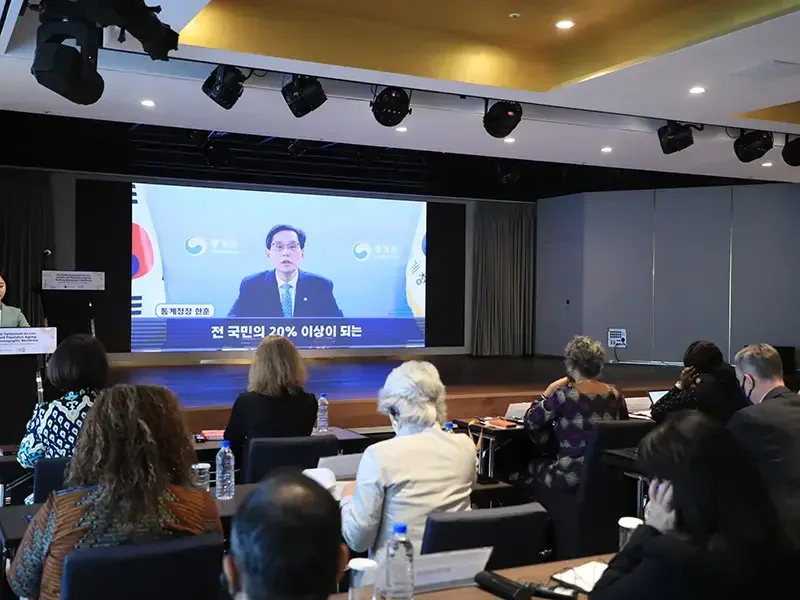
“We need to have a higher sense of responsibility and work together to solve population issues.” - Dr Hoon Han, KOSTAT Commissioner
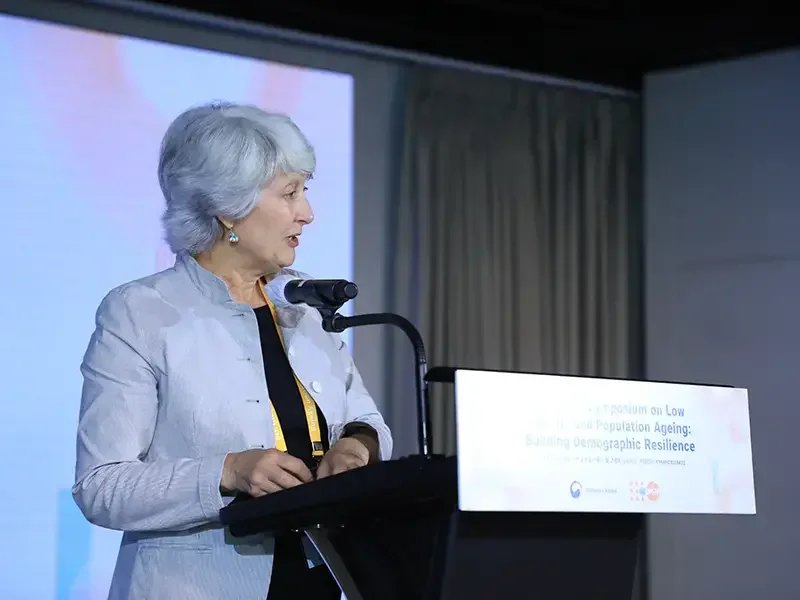
“Historically, all countries were once young, life expectancy was universally low, and life was short for nearly everyone. In the future - when a long life expectancy becomes a universal reality and development progress leads to lower fertility in, for example, Africa and Asia – then most countries will be older – and similar again.” - Rachel Snow, UNFPA, Chief of Population and Development, Technical Division

“It is important to establish an inclusive, adaptable and sustainable society and focusing on reproductive health and choices.” - José Luis Satdjian, Vice Minister of Health, Uruguay
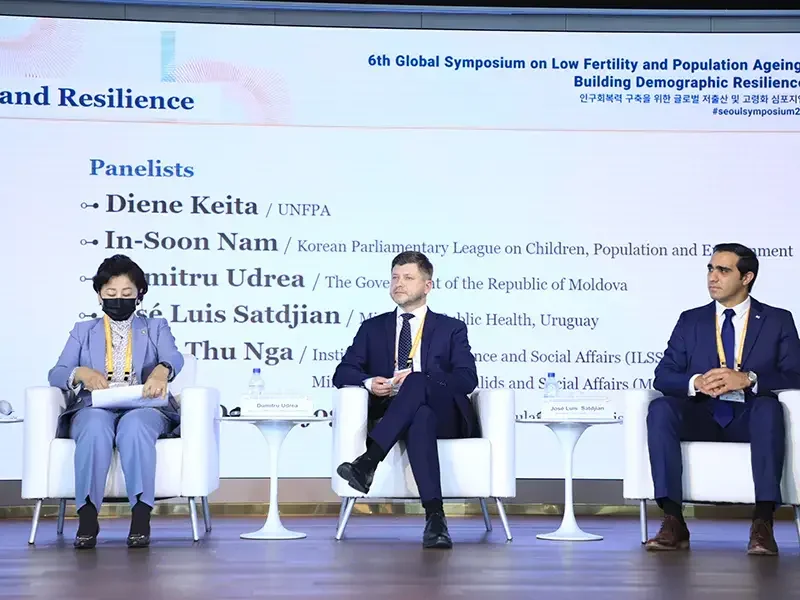
“One of the most important things is to build on opportunities. The government together with UNFPA conducted a survey on demographic trends that produces good data and helps the government to create evidence-based policies. We now have to focus on opportunities.” Dumitru Udrea, General Secretary, Government of Moldova
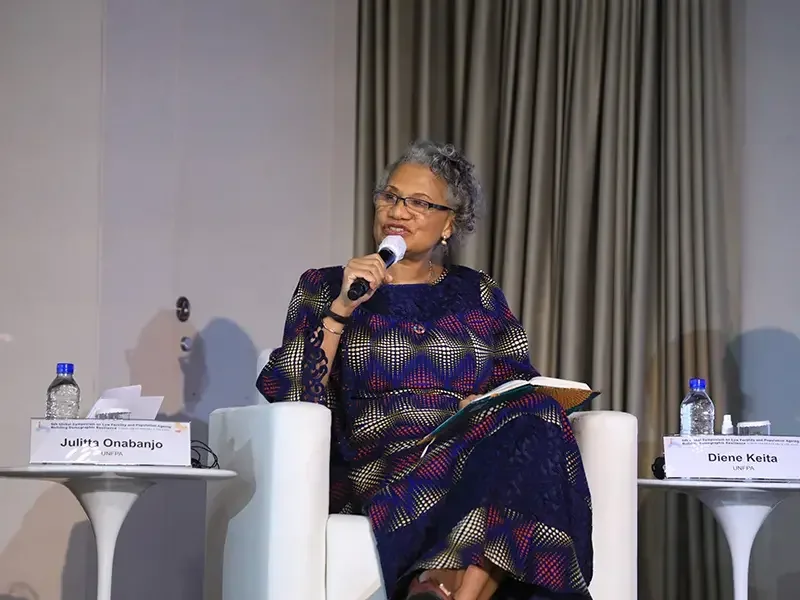
Julitta Onabanjo, Director of UNFPA’s technical director moderates the high-level panel on demographic trends and resilience.
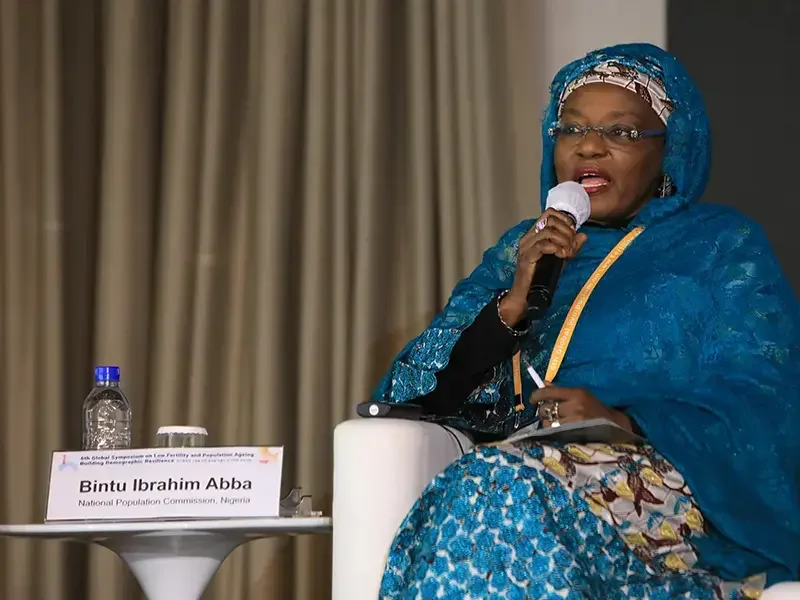
“Planning needs data. We must have something to work with. We have to make sure that data is collected every ten years.,” Bintu Ibrahim Abba, Director - Planning, Research and Statistics, National Population Commission of Nigeria
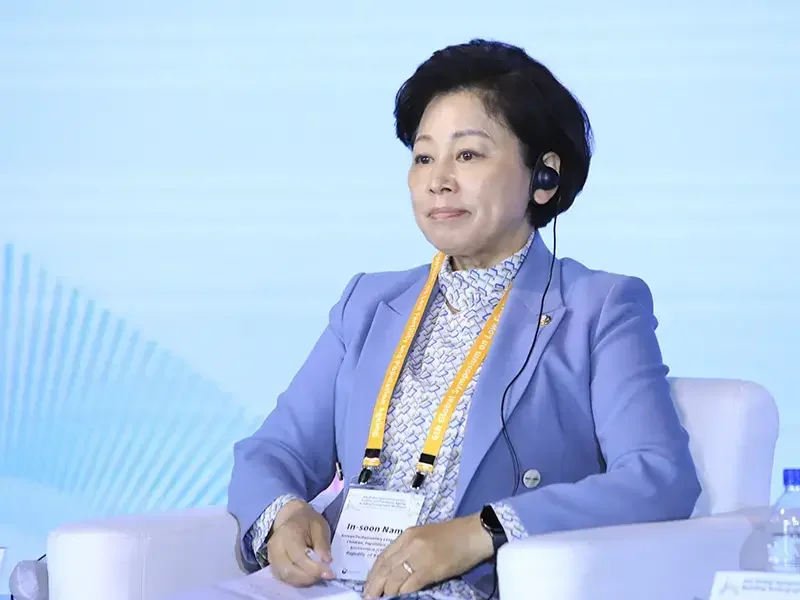
“Quantitative targets to address low fertility didn't work. We changed our strategy and now aim at creating a society where everyone can participate & achieve their full potential.” - In-Soon Nam, Vice President, Korean Parliamentary League on Children, Population and Environment
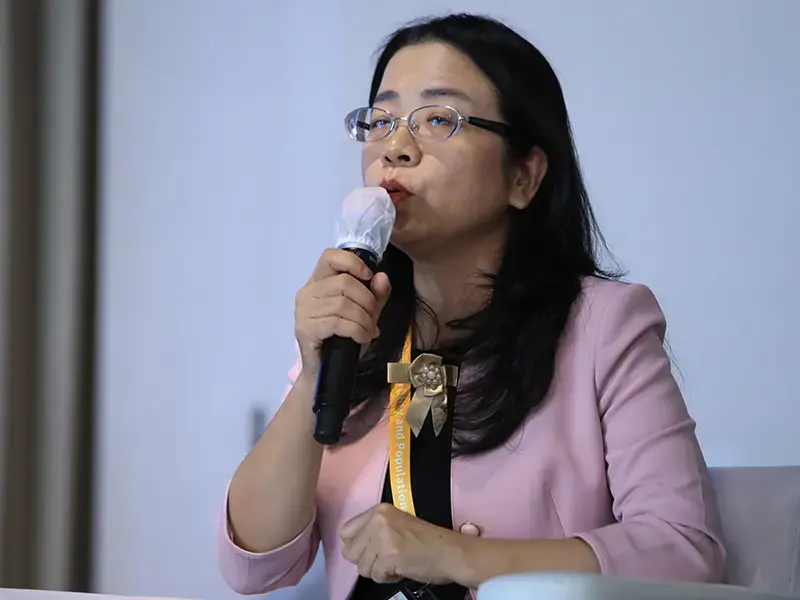
“The demographic window of opportunity in VietNam is small.” - Trinh Thu Nga, Deputy Director General of the Institute of Labour Science and Social Affairs

“Demographic change is a transition that affects all aspects of life, and also has crucial geopolitical impact. These issues know no border and we look forward to seeking solutions that have relevance across the world.” Colin Scicluna, Head of Cabinet, European Union

“If there was ever any event that showed the marginalization and invisibility of older people, it was COVID-19,” Emem Omokaro, Director General, National Senior Citizen Centre, Nigeria
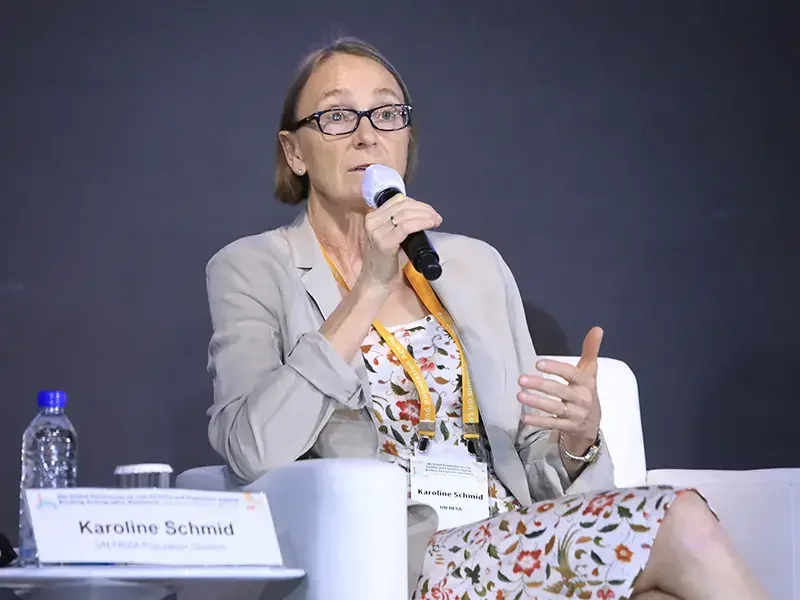
“What we have not done was to show how much older persons contributed during COVID-19 in health care, taking care of people at home etc.” Karoline Schmid, Chief, Fertility & Population Ageing, UNDESA

“COVID-19 showed very clearly the gaps in care services for the marginalized, especially older people. That's why we doubled the budget this year and will double it again next year." -Tamila Barkalaia, Deputy Minister, Ministry of Labour, Health and Social Affairs, Georgia

The Global Symposium on Ageing and Low Fertility, co-hosted by UNFPA and Statistics Korea (KOSTAT), places the concept of demographic resilience at the centre of changing demographic trends.

"Rapid depopulation isn't so much a problem in itself, but a symptom of upstream malfunctions that cause low fertility, outmigration, and inequalities." - Stuart Gietel-Basten, Khalifa University, UAE

“We identified quality of life and lack of opportunities as primary obstacles to family planning in the long term, ” Sabina Ćudić, National Parliament, Bosnia and Herzegovina

“We are becoming accustomed to being in the situation of depopulation. But I am optimistic that we can overcome this situation. Quality of life is very important, especially for elderly persons, our city’s average age of persons is over 45. Cutting edge technology and digital transformation help with that,” Akihito Uesada, Mayor of Matsue City

“With UNFPA support, we developed a theory of change of demographic resilience based on the generation and gender survey we conducted in 2020. Based on that survey, we set the priorities for our demographic policies, some of those have materialized this year.” - Felicia Bechtoldt, Ministry of Labour and Social Protection, Moldova

“There is a very interesting phenomenon in Korea: people want to live where the housing costs are high so that when they retire, the value of their property increased,” Sang-Hyop Lee, University of Hawaii

“Human capital development has always been a priority for the government of #Botswana. Resources have always been invested in education to push development and achieve prosperity for all.” - Boitumelo S. Gofhamodimo, Deputy Secretary (Macroeconomic Policy), National Planning Commission, Botswana

“It is important to predict a future and prepare in advance for policy planning but also implementation. Our role is to properly implement policy and put those policies into reality.” - Alejandra Esquivel, Director of Development Analysis of the Ministry of Planning, Costa Rica

“Resilience covers many aspects – economics, education and even infrastructure. But the most important part is inclusiveness especially for the vulnerable people.” - Maliki, Director of Poverty Alleviation and Community Empowerment, Ministry of National Development Planning of Indonesia

“Education does not stop at a certain age and lifelong education can play a major role in the lives of older people and harness their capacities. Different aspects of education can be incorporated in lifelong education.” - Professor Lakshman Dissanayake, University of Colombo, Sri Lanka

“We have to turn around challenges into opportunities and there is no one size fits all. The population policy of Mauritius focuses on social demographic patterns to capitalize on the high proportion of workers in the coming two decades, focus on young people, ensure fertility choices and promote active and healthy ageing.” - Devi Chand Anandi Rye Seewooruthun, Senior Chief Executive, Ministry of Health and Wellness, Mauritius

Florence Bauer, Regional Director of UNFPA Eastern Europe and Central Asia, moderates the high-level panel on’ Declining numbers: Challenges and opportunities’

“Many of the COVID-19 responses have had a significant impact in terms of how migration is operating. The pandemic has changed migration and mobility considerably, especially between developing and developed countries, and we are still experiencing its impacts.” - Marie McAuliffe, Head, MRD & Editor, World Migration Report, IOM

“North Macedonia, together with Bosnia and Herzegovina and Serbia, are the countries with the highest emigration of highly trained or qualified people in the world.” - Marija Dimitrovska, UNFPA North Macedonia

“We need to have a better conception of migration associated with environmental change.” - Ahmed Inaz, Chairperson of the Board, Pension Administration Office, Maldives
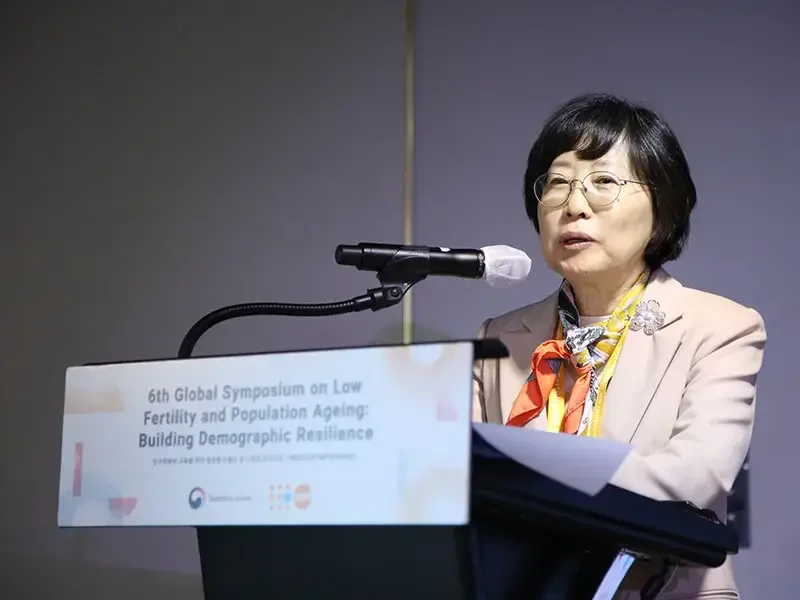
“Inequality is still felt in the labor market although many men think that they are treated equal. You can see that the subjective views towards equality are very different among genders.” - Dr. Yookyoung Mun, President of Korean Women Development Institute

“When it comes to providing equal services, it has always been a challenge.” Aishath Mohamed Didi, Minister of Gender, Family and Social Services Maldives highlights the realities of the country which has over 1200 islands of which about 200 are inhabited.
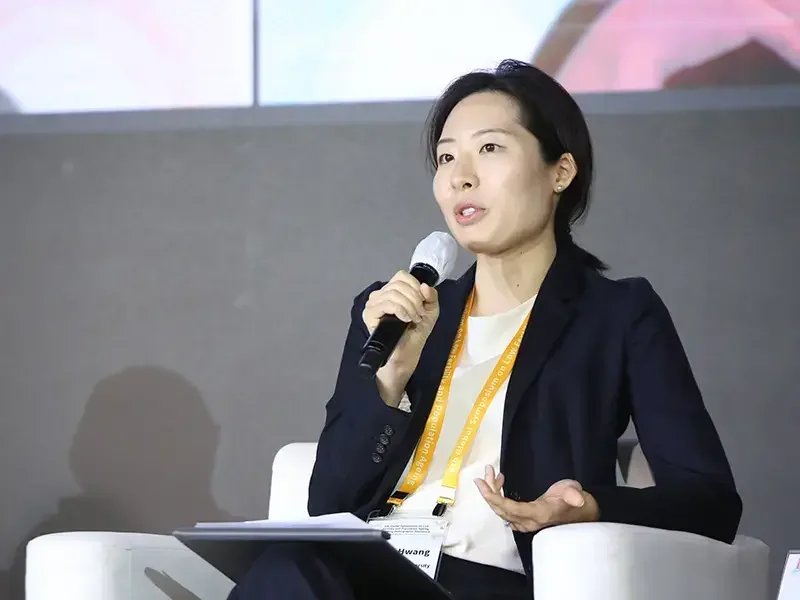
“Although fertility rate has declined steadily, that does not prove that policies have been inefficient. That said, we should discuss why the policies weren’t strong enough.” - Jisoo Hwang, Professor at Seoul National University

“Men are rewarded when they become fathers. Employers, for example, think that they are more reliable now that they might be the breadwinners. The social norms and discrimination is so embedded in the work place, even up to the recruitment of workers,” Nafissatou Diop, Chief Gender and Human Rights, UNFPA

“Being millennials we have been raised with the family and expanding the family as a priority. Somewhere and somehow we did not agree with that and that’s why we are giving the freedom to the next generation.” Arbana Pasholi, Member of Parliament, North Macedonia

“Our policies need to keep up and hear the voices and develop more sophisticated policies. Rights and choices need to remain at the center of those policies,” Alanna Armitage, Representative, UNFPA Mexico
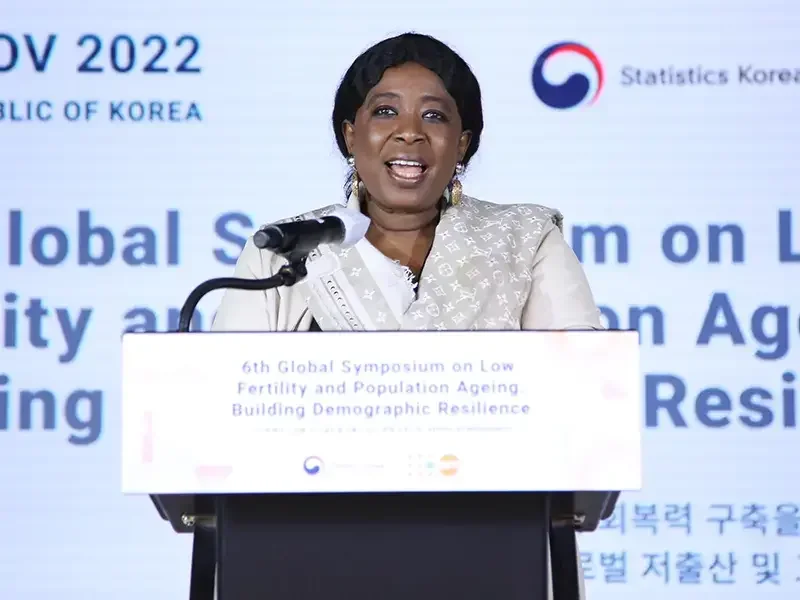
“We have heard a lot in the last days about demographic diversity. The diversity of countries in this Symposium reminds us that the answers and policies will have to differ among countries. Countries need to shift the approach from anxieties to resilience, from challenges to opportunities.” Diene Keita, Deputy Executive Director, UNFPA
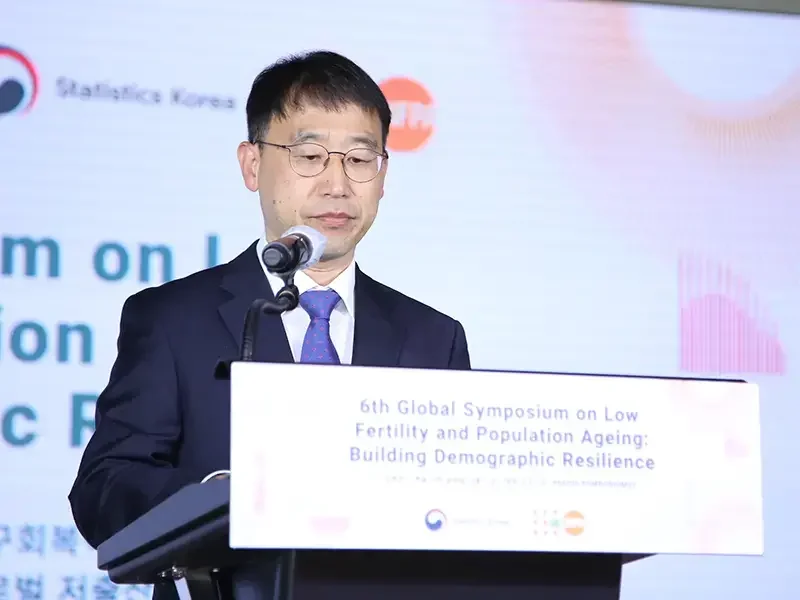
“I aspire that the outcomes of the symposium will result in policies in the participants’ countries that can subsequently be shared.” Yeonok Choi, Vice Commissioner, KOSTAT

Durbek Akhmedov, Deputy Chairman of the Budget and Economic Reforms Committee of the Legislative Chamber of the Oliy Majlis of the Republic of Uzbekistan, breaks down outmigration from Uzbekistan. SouthKorea is among the top destinations.

